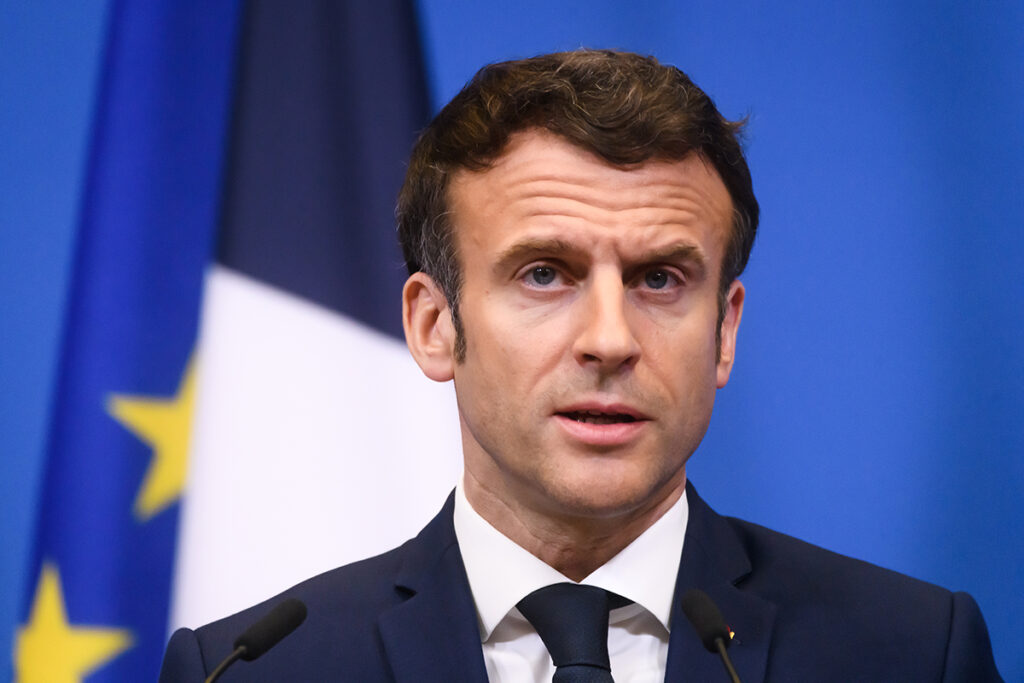In a move that has stirred significant controversy across Europe and beyond, French President Emmanuel Macron has hinted at the possibility of deploying Western troops to Ukraine, a suggestion that has isolated him on the European stage. The statement, made during a press conference following a meeting with 20 European heads of state in Paris, has sparked an immediate backlash from allies and a stern warning from the Kremlin.
While Macron clarified that there was no consensus on sending combat troops to Ukraine, he left the door open by stating that “in terms of dynamics, nothing can be ruled out.” This ambiguous stance has led to a scramble among French officials to mitigate the fallout, emphasizing that any potential military involvement would focus on non-combat operations such as de-mining and military training.
The reaction from European allies was swift, with key countries like Germany and Poland, along with NATO Secretary-General Jens Stoltenberg, distancing themselves from the French president’s comments. They firmly stated that there were no plans for NATO combat troops on the ground in Ukraine, underscoring the alliance’s current stance against direct military intervention.
Macron’s remarks come at a time when the French president has shifted his position on Russia following its full-scale invasion of Ukraine in February 2022. Initially maintaining open lines of communication with Russian President Vladimir Putin, Macron has since adopted a tougher public stance. However, his latest comments suggest a strategy aimed at alarming Russia about the increasing willingness of Western countries to support Ukraine militarily, albeit leading to confusion about the true intentions behind his statements.
The Kremlin’s response to the prospect of Western troops in Ukraine was stark, with warnings of an inevitable direct conflict between NATO and Russia. Putin even highlighted the risk of escalating tensions to a global nuclear conflict, underlining the high stakes involved in any change to the current military support provided to Ukraine.
Amidst this geopolitical tension, Macron’s broader concerns about European security and the need for autonomy in defense matters have come to the fore. With the potential for changes in U.S. policy towards Ukraine, especially with the upcoming American elections, Macron has argued for a European future that does not rely solely on American voters’ decisions.
Despite the intentions behind Macron’s statements, critics argue that the French president may have inadvertently sown seeds of division within NATO and among European allies. By introducing the possibility of Western military involvement in Ukraine, even in a non-combat capacity, Macron has potentially weakened the unified front that Europe has sought to present in the face of Russian aggression.
As discussions continue among European foreign and defense ministers, the fallout from Macron’s comments underscores the delicate balance between deterring Russian aggression and maintaining alliance unity. The situation highlights the complexities of European security policy and the challenges of presenting a cohesive stance in the face of evolving threats on the continent.


